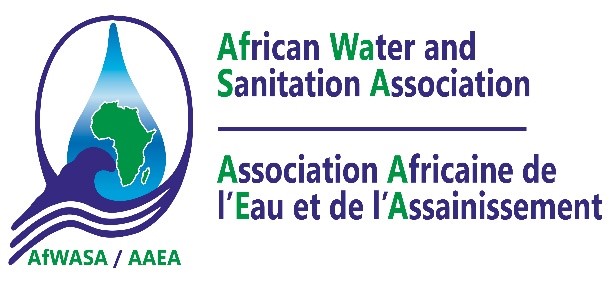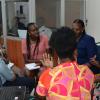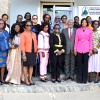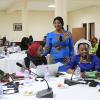Women Leadership Training in WASH kicks-off in Abidjan
The second round of the women’s leadership workshop, organized by the African Water and Sanitation Association (AfWASA) with the support of the Gates Foundation, officially kicked off this morning in Grand-Bassam, Côte d’Ivoire. Over the next three days, 23 women from 13 African countries will strengthen their skills in leadership, advocacy, and personal development in a sector still marked by deep gender inequalities.
This training session, held from May 27 to 29, 2025, aims to equip participants to become agents of change within their institutions and in their respective countries. It is part of AfWASA’s strategic program to increase women’s representation and influence in the water, sanitation, and hygiene sectors across the continent.
The opening ceremony was marked by powerful messages highlighting the urgency of advancing gender equality in a sector critical to sustainable development.
Nabintou Cissé, Deputy Managing Director of ONEP and guest of honor at the opening, emphasized a core principle: competence must remain the foundation of any professional advancement. While support for women is essential, it cannot be separated from excellence. She encouraged women to continually strengthen their capacities, pursue training, and assert themselves with confidence. She also highlighted the importance of sorority, calling on women to support one another once competence is established, in order to foster collective advancement. Finally, she underscored the need for professional networking: having skills is not enough — one must also be visible, recognized, and known by decision-makers.
AfWASA Executive Director Olivier Gosso stressed the critical role that women must play, not merely as beneficiaries of water and sanitation services, but as designers, managers, and decision-makers. Gender equality must no longer be just a promise but a measurable commitment — reflected in policies, tracked in indicators, and realized in results.
This first day of the workshop covered key concepts including gender, women’s leadership, self-esteem, and leadership styles. Participants also shared their journeys and experiences, creating a vibrant collective dynamic rich in inspiration and commitment.
Let"s note that participant come from Benin, Burkina Faso, Cameroun, Congo, Cote d’Ivoire, Ghana, Kenya, Malawi, Mali, Niger, South Sudan, Togo and Uganda.




